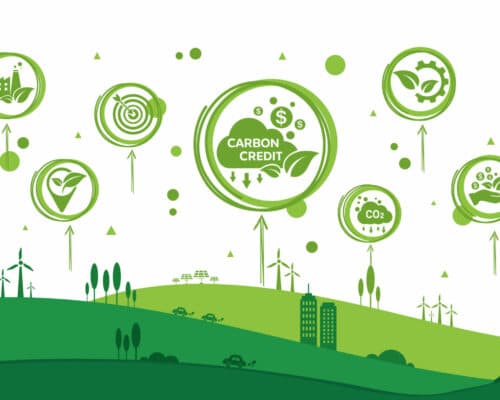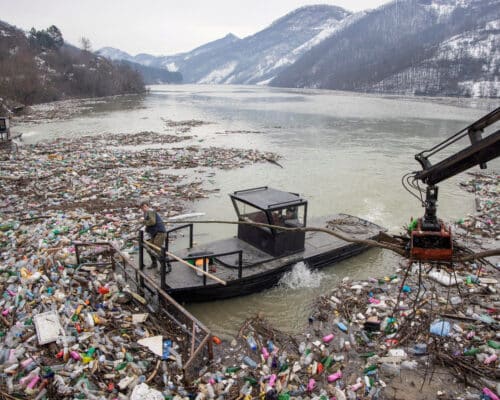Articles
Oil Majors Spend More on Spin, Less on “Green Hydrogen”
Several oil companies have stated goals to reduce their emissions. Often a key piece of this plan focuses on increasing natural gas production and investing in hydrogen energy. Unfortunately, there are many types of hydrogen energy and only one type is sustainable - green hydrogen. Currently, green hydrogen only accounts for a fraction of total hydrogen production.
The Spotlight on the Asia-Pacific’s Energy Transitioning to Net-Zero Emissions
Clean energy executive, analyst, and author Joseph Jacobelli argues that the Asia Pacific region has unique features when it comes to the electricity transition to Net Zero Emissions (NTZ). He thinks that the shift from polluting fossil fuels to green and sustainable energy sources will be the biggest in the world, that capital spending will eclipse all other regions, and that some power markets will lead while others will lag.
Solar Homes: The ‘Mini Power Stations’ Popping Up Across India
The prospect of solar was first discussed in 1961-66 signifying India’s consciousness for reducing carbon footprint. Since then a total of 60 cities have been selected across the country for solarisation with the primary objective of decreasing the projected demand of conventional energy and motivating local governments to adopt renewable energy technologies and energy efficiency measures.
Oil and Gas in India: What is the Way Forward?
Oil and gas play a major part of India's energy mix. Unfortunately, India remains focused on the sector, and is making substantial investment towards natural gas in the coming decades. This move remains at odds with global emissions targets and puts India at risk of missing the economic benefits of renewable energy development.
COP26: How Lack of Climate Finance Derails Coal Phase-out Agenda
The chaos around the last-minute change in the coal declaration by India, China and South Africa at COP26 has certainly made it harder to reach the 1.5-degree target. At the Glasgow UN climate summit, nations pledged to phase-out coal, reduce methane, end deforestation and support the energy transition, etc. With the USD 100 billion pledge of climate finance still not being fulfilled, small and developing countries called for climate justice. Many nations now plan to revisit their commitment by the end of 2022.
COP26: The Glasgow Climate Pact Has Been Adopted
China, India, EU, US undermine global fossil-fuel phaseout pledge, as rich nations refuse climate crisis support for poorest.
Denial by “Natural Gas Industry” and Greenwashing Practices
The oil and gas industry has been one of the most influential sectors over the past several decades, but there are signs that this may be changing. Public and private sentiment is shifting, and the spotlight is swinging towards renewables. In an attempt to slow this transition, many fossil fuel companies have increased lobbying and public outreach. Unfortunately, this has led to a rise in greenwashing. The reality is that change is happening, and it is in the best interest of these fossil fuel giants to shift with it, capitalizing on the changing market.
The End of Internal Combustion Engine at COP26: The Glasgow Accord
The Glasgow Accord on Zero Emissions Vehicles is one of the major pieces of policy to come out of COP26. It unites governments, auto manufacturers, and fleet vehicle owners to phase out ICE vehicles by 2035. Signed by 34 countries, India is the lone signatory from Asia and will need to be a role model for the region.
COP26 – With No Financing to Go Around, Cancelling All New Coal Power Plant is a Practical Move for Host Countries
China’s recent pledge solidifies a global financial trend away from coal, as several private and governmental institutions, most notably from Japan and South Korea followed by all G20 countries, have made similar announcements. Recent announcements at the COP26 climate talks from national governments also raises questions about the future of new coal plants. With several countries pledging to phase-out coal in 2040 – or the equivalent conditional on financial support – building new coal capacity will be incompatible with these carbon neutral pledges and other climate commitments.
COP26 and the Future of Hard-to-Abate Sectors in Asia
The announcements during the COP26 can be a turning point in the global energy policy. Not only because of all the new initiatives and targets for renewable energy development and coal phase-out, but also thanks to commitments to decarbonise hard-to-abate sectors.
COP26: Clean Energy Finally Ready To Break Through
As decarbonisation accelerates the world over, clean energy is taking centre stage. Since the Paris Agreement, the rate of growth for solar and wind capacity has increased every year. Dramatic cost reductions have rewired the economics of electricity. Renewables are entering a golden age. Seizing the opportunities they provide, including cheap, robust and secure energy for all, will be crucial over the coming decade.
Vietnam’s Coal Pledge at COP26 – A New PDP8 and Net-Zero by 2050
Over the past year, Vietnam has been going back and forth in its energy roadmap. However, the country used the stage of COP26 to announce ambitious renewable energy targets and a commitment to phase out coal - a clear sign that it is getting back on the right track.
COP26: Glasgow Marks The Beginning Of The End Of Coal
At the COP26 in Glasgow, President Alok Sharma declared, “we finally kicked coal in the past where it belongs,” underlining deals to end international coal financing and phase out coal power.
What the Future Holds for the Renewable Energy Industry in Asia
Asia is responsible for over 45% of the world’s CO2 emissions. The region counts 93 of the 100 world’s most polluted cities. As home to over 50% of the world’s population and 60% of the largest cities, Asia will also soon face a rapidly increasing energy demand. The way the continent will face it will be detrimental to the global net-zero efforts.



